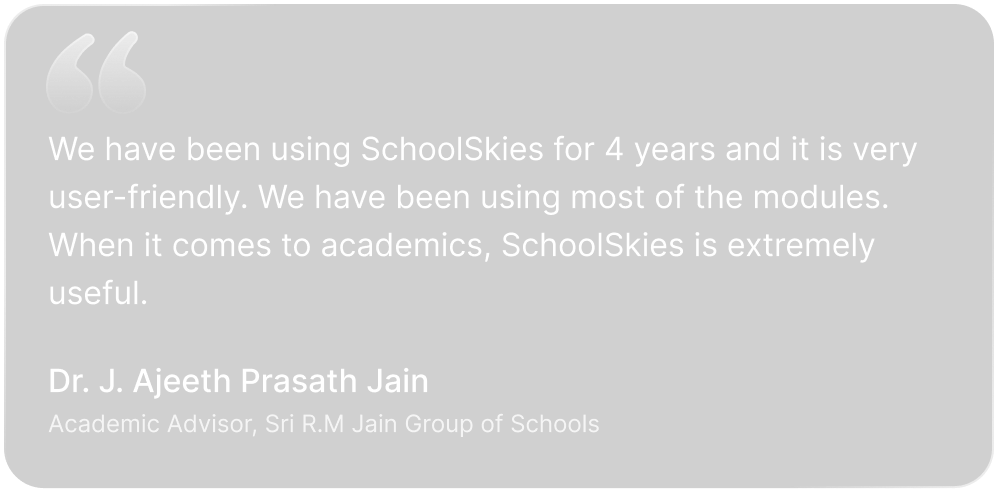Start Your Free
Trial Now


In the rapidly evolving landscape of education, the integration of technology has transcended traditional teaching methods, ushering in a new era of data-driven insights and personalized learning. Leveraging analytics in education is not just a technological enhancement; it's a transformative approach that empowers educators to tailor their teaching strategies, ultimately enhancing student outcomes. In this blog post, we explore the profound impact of analytics in education and how it can be harnessed to elevate the teaching experience.
Educational analytics involve the systematic analysis of data generated within the educational ecosystem. This includes student performance data, engagement metrics, and other relevant information that provides valuable insights into the teaching and learning process.
Analytics enables educators to gain a granular understanding of each student's learning style, preferences, and strengths. Armed with this information, teachers can personalize learning journeys, tailoring instructional methods to meet individual needs and ensuring that no student is left behind.
By analyzing student performance data, educators can quickly identify learning gaps and challenges. Whether it's a specific concept that a group of students struggles with or individual difficulties, analytics provides real-time feedback, allowing teachers to intervene promptly with targeted support.
Analytics empowers educators to evaluate the effectiveness of curriculum materials and instructional methods. By identifying which strategies yield the best results, teachers can fine-tune their approaches, ensuring that the curriculum is engaging, relevant, and aligned with the diverse needs of their students.
Predictive analytics can help identify students who may be at risk of falling behind academically. By recognizing patterns and early warning signs, teachers can implement targeted interventions to support struggling students, preventing potential learning gaps from widening.
Analytics isn't just a tool for assessing student performance; it's also a valuable resource for teachers' professional development. By analyzing their teaching methods and their impact on student outcomes, educators can identify areas for improvement and engage in continuous learning to refine their skills.
Gone are the days of relying solely on intuition and anecdotal evidence. Analytics provides teachers with the data needed to make informed decisions. From choosing instructional materials to adapting teaching strategies, educators can confidently navigate their professional choices based on tangible insights.
Analytics also opens up avenues for improved communication with parents. By sharing data on student progress, areas for improvement, and achievements, teachers involve parents in their child's educational journey, fostering a collaborative partnership between home and school.
Analytics in education fosters a culture of continuous improvement. By regularly reviewing data, setting goals, and refining strategies, educators contribute to an educational ecosystem that is adaptive, responsive and committed to providing the best possible learning experience for students.
As education embraces the digital age, the integration of analytics in teaching represents a revolutionary shift towards personalized, data-driven, and student-centric learning. By harnessing the power of educational analytics, educators not only enhance their teaching strategies but also create an environment where every student has the opportunity to thrive. The future of education is dynamic, and analytics is the key to unlocking its full potential, empowering teachers to inspire, engage, and guide the next generation of learners.